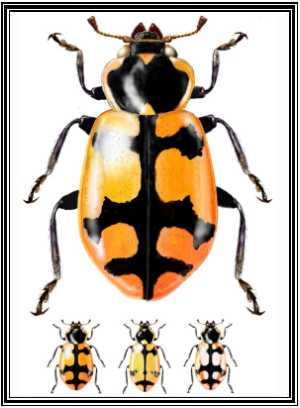Eriopis connexa is a native coccinelid predator in the Neotropical Region. In Argentina it is commonly found associated to sucking pests in several crops and among them aphids and whiteflies. These pests are usually controlled with newly developed systemic insecticides, such as the neonicotinoids. However, the compatibility between selective pesticides and natural enemies is required before incorporating them in integrated pest management (IPM) packages. Within this frame, the objective of this study was to evaluate the side effect of various concentrations/doses of one commonly used neonicotinoid in vegetal crops, acetamiprid, on immature stages of E. connexa by dipping or topical exposure for eggs and larvae, respectively. Acetamiprid reduced egg hatching from 34 to 100 %. Moreover, the embryogenesis was disrupted by insecticide at early embryo
stage at all tested concentrations. Second larval instar was more susceptible to acetamiprid than the fourth one and this susceptibility was positively related with the tested concentrations. On the other hand, the survival reduction at larval stage reached 100 % from 20 mg a.i./L (10 % of maximum field concentration). Besides, the reproduction of the females developed from topical bioassays on fourth instar larvae was strongly affected, with reduction in fecundity and fertility from 22 to 44 % and from 37 to 45 %, respectively. Overall the results showed a high toxicity of acetamiprid on immature stages of E. connexa, demonstrating that this broadly used insecticide could reduce biocontrol services provided by this predator and could also likely disturb IPM programs.
Source:
Marilina N. Fogel et al. (2013) Ecotoxicology
DOI 10.1007/s10646-013-1094-5

- Log in to post comments
